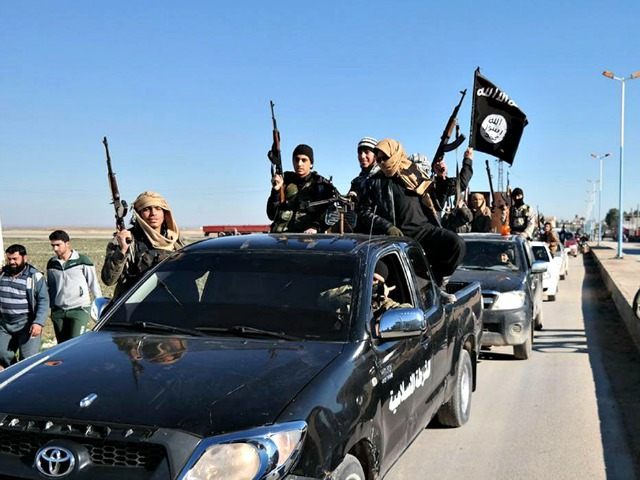According to an analysis published at Rudaw, the Islamic State’s books include $80 million per month in revenue from taxes, confiscating property, drug smuggling, oil sales, selling electricity to captive populations, kidnapping for ransom, and even old-fashioned banditry, such as bank robberies.
IHS, the think tank that authored the study, points out that ISIS has a financial profile different from other terror organizations, including its godfathers in al-Qaeda: ISIS relies far less on donations from sympathizers. It generates (and steals) its own revenue. It might be a bit of a stretch to describe ISIS as a functioning nation state, but it has a troubling level of financial independence.
“One of the Islamic State’s main sources of income comes from taxation on economic activity and basic services, including electricity, mobile phone networks, internet access, retail, industry and agriculture, within territory it controls. They charge a 20 percent tax on all services,” explained senior analyst Ludovico Carlino.
“Its business model, which is heavily focused on intermediaries and taking percentage cuts, also means that the Islamic State is able to make profits from areas and sectors where it is not directly involved,” Carlino continued.
The brutal ISIS business model flourished in the lawless regions of war-torn Syria and adjacent western Iraq, making it easier for the terror state to take over both civic institutions and criminal enterprises. The IHS report mentions the established dependence of local populations on black markets and smuggling as a factor exploited by ISIS.
Another unpleasant reality is that because ISIS is maintaining civic operations and squeezing them for cash, it is difficult for Western forces to strike at the Islamic State economy without damaging civilian infrastructure and inflicting hardship upon captive populations. This problem was detailed most clearly with respect to attacking the ISIS oil industry, as U.S. war planners professed their reluctance to harm civilian refinery workers or truck drivers, damage machinery needed by the civilian populace after ISIS is gone, or inflict damage on the local environment.
On the bright side, the IHS report found that “efforts to target the Islamic State’s sources of revenue are paying off,” including the commencement of that long-delayed campaign against ISIS oil.
“Airstrikes have significantly degraded the group’s refining capacity, and ability to transport oil via tanker convoys,” claims the think tank, assessing ISIS oil refining capacity as “largely destroyed.” The loss of easy access to Turkey is cited as another problem for Islamic State oil exports, an observation that would be met with chagrin – and considerable hostility – by the Turkish government.
The report also found early indications that the Islamic State is “struggling to balance its budget,” including reports of “cuts to fighters’ salaries, price hikes on electricity and other basic services, and the introduction of new agricultural taxes.”
On Monday, the UK Daily Mail reported on leaked internal documents that “laid bare a staggeringly sophisticated level of administration imposed by ISIS in a bid to turn its self-declared caliphate into a legitimate state.”
These documents included provisions for health, education, and treasury departments, along with a structured program for maintaining a regular military. Of course, it is an evil military, so the blueprint for the Islamic State included the training of child soldiers from day one.
These documents add more revenue streams to those described by IHS, including rackets to control wheat production, sell looted historical artifacts, and collect extortion payments. And yes, they collect the Islamic submission tax, the jizya, from Christians and others who refuse conversion to Islam.
The overall picture painted by these reports is a more-or-less functional economy, created with considerably more planning and attention to detail than ISIS’ reputation for vandal conquest would anticipate. Hopefully, the military campaign against ISIS can bring this economy crashing down because it does not appear likely to collapse any time soon without a push.

COMMENTS
Please let us know if you're having issues with commenting.